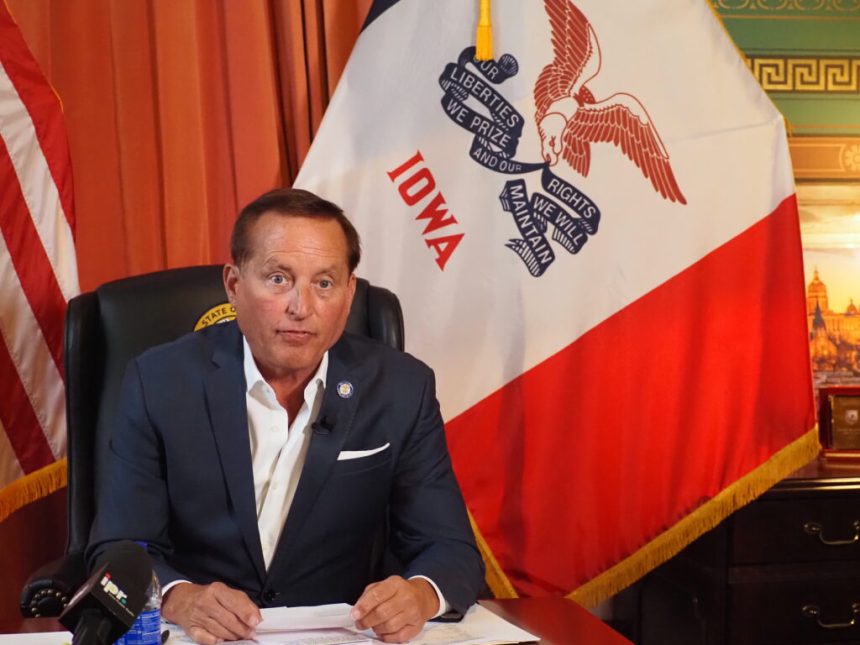Iowa Secretary of State Paul Pate spoke with reporters in his office at the Iowa State Capitol Dec. 2, 2024. (Photo by Robin Opsahl/Iowa Capital Dispatch)
Iowa Secretary of State Paul Pate issued a warning for Iowans Wednesday about reported mass texts impersonating elected officials and candidates.
The state elections official said fraudulent messages were reported in Franklin, Johnson, and Madison counties. According to a news release, the mass texts from “an individual or group” are impersonating public officials and candidates and include the message, “I’m listening to residents about what matters most in our community. What issues do you think should be our top priority? Reply with your thoughts or text STOP to opt out.”
Pate said the Secretary of State’s office has confirmed the messages are not authentic. He called for Iowans who have received the messages to immediately report them to his office, as well as local law enforcement and their local county auditor’s office, and to “remain vigilant about messages claiming to be from officials or candidates.”
SUBSCRIBE: GET THE MORNING HEADLINES DELIVERED TO YOUR INBOX
“With the continued rise of election-related misinformation, we remind Iowans to always verify information through trusted sources: the Iowa Secretary of State’s Office or your local county auditor,” Pate said.
The news release noted there were many legitimate outreach campaigns for candidates competing in the approaching Nov. 4 city and school elections. Early and absentee voting in local elections began Wednesday.
However, the secretary of state’s office stated legitimate candidates and pollsters will not ask for sensitive information from voters. Additionally, the office recommended verifying the legitimacy of any links to donation sites sent through texts.
“We urge Iowans not to provide sensitive information over text, and if making plans to donate, to navigate separately to the candidate’s official donation channels,” Pate said. “If Iowans have any questions, we encourage them to turn to trusted sources of information and reach out directly to campaigns to validate any outreach.”









